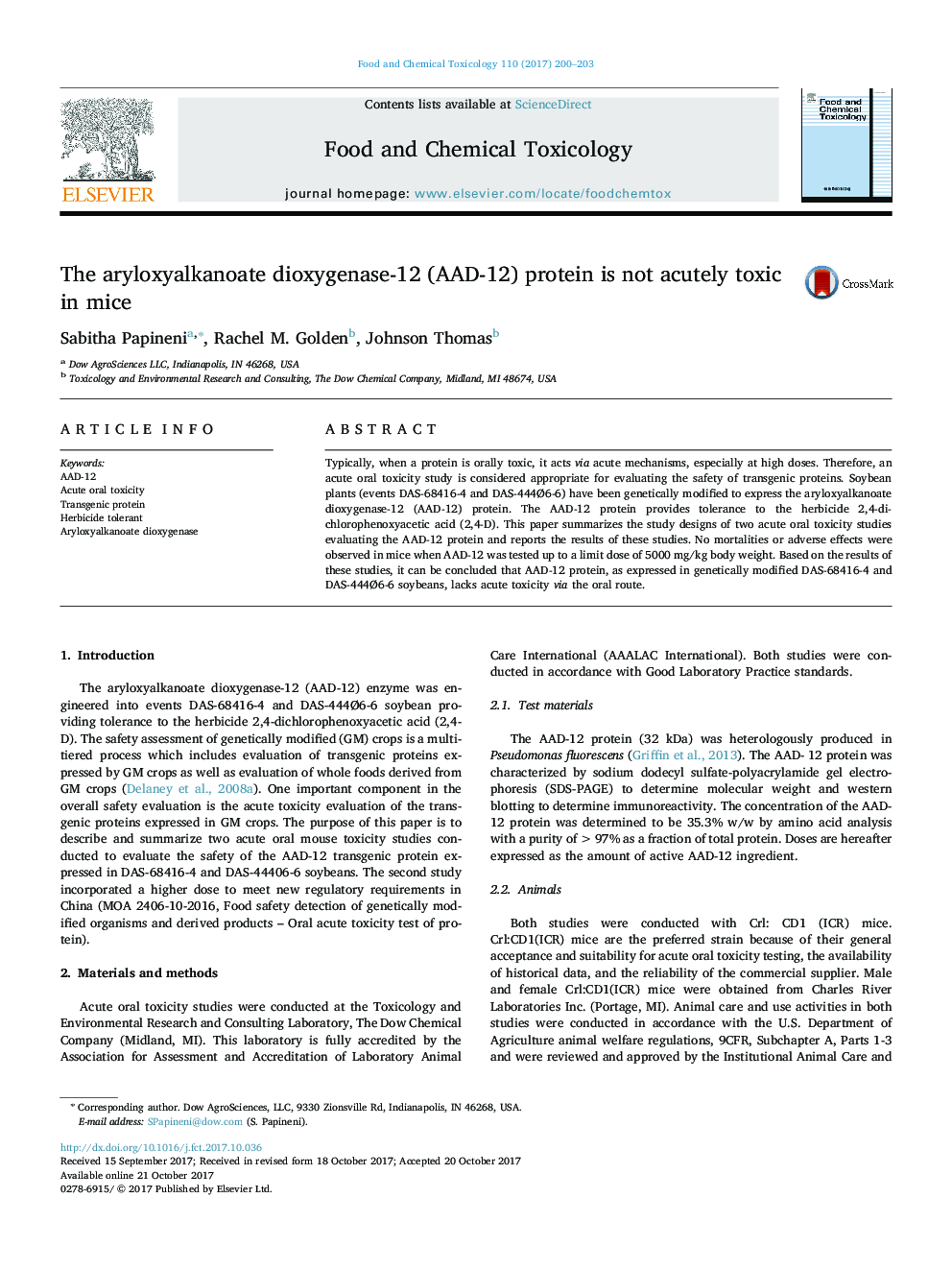| Article ID | Journal | Published Year | Pages | File Type |
|---|---|---|---|---|
| 8548592 | Food and Chemical Toxicology | 2017 | 4 Pages |
Abstract
Typically, when a protein is orally toxic, it acts via acute mechanisms, especially at high doses. Therefore, an acute oral toxicity study is considered appropriate for evaluating the safety of transgenic proteins. Soybean plants (events DAS-68416-4 and DAS-444Ã6-6) have been genetically modified to express the aryloxyalkanoate dioxygenase-12 (AAD-12) protein. The AAD-12 protein provides tolerance to the herbicide 2,4-dichlorophenoxyacetic acid (2,4-D). This paper summarizes the study designs of two acute oral toxicity studies evaluating the AAD-12 protein and reports the results of these studies. No mortalities or adverse effects were observed in mice when AAD-12 was tested up to a limit dose of 5000Â mg/kg body weight. Based on the results of these studies, it can be concluded that AAD-12 protein, as expressed in genetically modified DAS-68416-4 and DAS-444Ã6-6 soybeans, lacks acute toxicity via the oral route.
Related Topics
Life Sciences
Agricultural and Biological Sciences
Food Science
Authors
Sabitha Papineni, Rachel M. Golden, Johnson Thomas,
